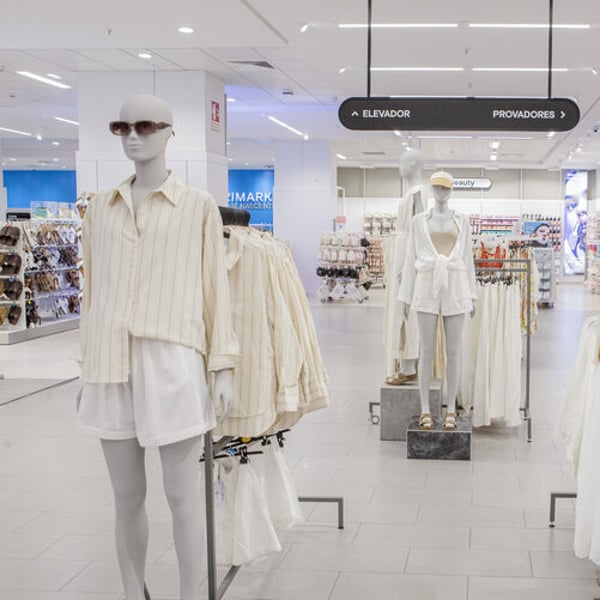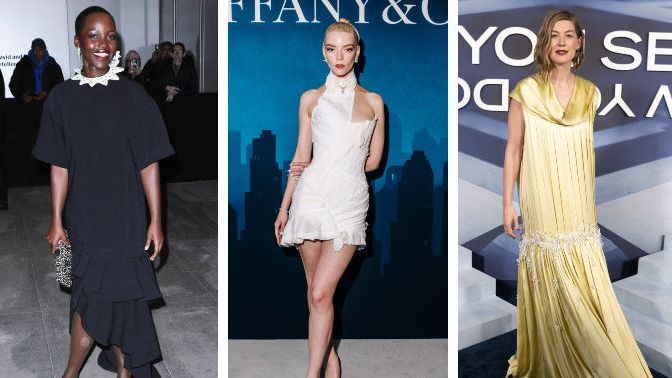On Friday, Oct. 3, The Business of Fashion will unveil 100 new additions to The BoF 500, our definitive index of people shaping the global fashion industry. To mark the occasion, we sat down with three members of The BoF 500 community to discuss how they are responding to the tumultuous state of fashion and the wider world.
This year’s BoF 500 comes at a pivotal moment. Across the industry, from emerging brands to global giants, fashion companies are feeling the pressure of an increasingly unstable world, marked by geopolitical conflicts and macroeconomic uncertainty.
But the industry is suffering from self-inflicted wounds as well. Too many companies have prioritised revenue and profit growth at the expense of long-term brand values and customer trust. Rampant price increases, declining quality, supply chain scandals and a general lack of creativity and innovation have all played a part in weakening fashion’s value proposition at a time when competing lifestyle categories are capturing greater share of wallet.
This year’s BoF 500 cover stars — Yohji Yamamoto, Matthieu Blazy and Kim Kardashian — are each grappling with this moment in their own way, in their own segments of the market.
Fashion’s punk poet Yohji Yamamoto is angry. He is exhausted with geopolitical conflicts, frightened by steadily creeping climate change and anxious about the current state of the fashion system.
“Fashion has become a joke,” he told me at his headquarters in Tokyo. “It’s all about money. The major companies of fashion, they’re like kids playing kid soccer, just running after the ball. They’re not thinking about their customers. I just think they have too much money, so they don’t need to work hard. Money is always floating on them.”
Following a bankruptcy and restructuring during the last great fashion crisis in 2008, Yamamoto’s “small but strong” business is now generating more than $200 million in revenues and growing at 15 percent annually, far outpacing the market. But he knows that he will stop designing in the coming years and has been quietly focused on putting in place his succession plans. In our exchange, he revealed what he is thinking and feeling about life, love, loss and the future of his business and the wider industry.
In Paris, Chanel’s Matthieu Blazy has been tasked with re-energising the French couture giant, itself a global symbol of luxury fashion. In a series of interactions with BoF’s Tim Blanks that took place in the run up to Blazy’s highly-anticipated debut show on October 6 we learn how the designer uncovered new insights into Gabrielle Chanel’s process as he charts new territory for Chanel — and fashion at large.
“I think fashion is in a funny state,” said Blazy. “It grew very, very fast over the last years, post pandemic, and it kind of hit a ceiling. I think now what fashion needs to do is to rethink its own model, but not just when it comes to design. We’ve seen some houses exploding, we’ve seen some houses collapsing. What needs to be done is a deep work on what fashion stands for. I think we are at a stage where fashion needs to re-imagine its own narrative. Luxury is not enough anymore. It’s expensive and it’s rare, so it’s good? That’s not enough.”
Meanwhile, Kim Kardashian, the social media star, entrepreneur and one of the most visible women in the world, is cementing her role as an era-defining brand builder with her $4 billion shapewear label Skims. Just last week, she unveiled NikeSkims, a blockbuster partnership with Kardashian’s body-positive, shade-diverse label that could help Nike finally crack the code with women — and send Skims’ valuation higher still.
BoF’s Sheena Butler-Young spoke at length with Kardashian, as well as top executives at Nike and Skims just as they were putting the finishing touches on the launch, to understand their game plan.
“Seeing the marketplace and how overcrowded that is, I wanted something that was so just clear, different, innovative,” Kardashian said. “I wanted it to have the credibility that Nike has and I wanted the customer to have this feeling that they’re going to get a really strong Skims product.”
But Kardashian knows today’s customers are seeking more than a better product. “I don’t measure it just on sales,” she added. “I measure a lot of it on the cultural impact that it would have.”
To get the first look at The BoF 500 Class of 2025 and this year’s cover stories, sign up to the BoF Daily Digest Newsletter.


